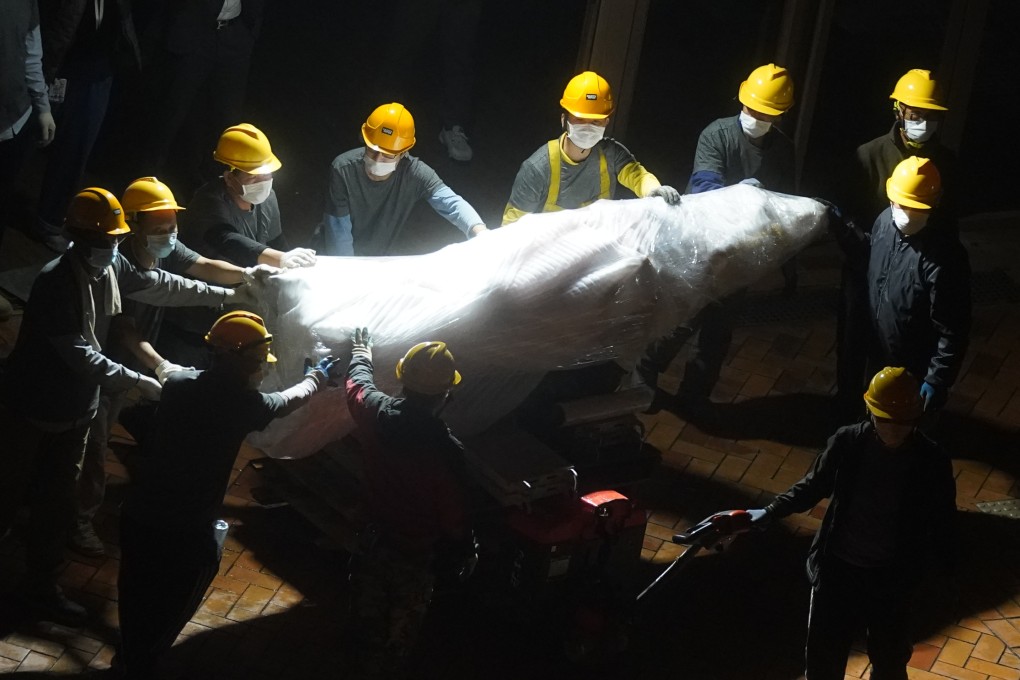Hong Kong national security police seize ‘Pillar of Shame’ statue in connection with subversion case
- National security police execute search warrant at Kadoorie Centre and seize controversial artwork
- Sculpture’s creator tells Post he was neither consulted nor informed about its seizure and calls move ‘outrageous’

A source familiar with the case said the sculpture, called the “Pillar of Shame”, was confiscated from the Kadoorie Centre in Yuen Long, an agricultural research facility run by the University of Hong Kong (HKU) on Friday.
The removal comes less than a month before the 34th anniversary of the June 4 crackdown in Beijing and three days after a senior figure behind an annual candlelight vigil in Hong Kong mourning those killed in the event won a human rights award.
A statement by the force only confirmed a seizure had been made relating to a national security case and did not reveal further details.
“The National Security Department of the Hong Kong Police Force conducted searches with a warrant this morning,” it said. “An exhibit related to an ‘incitement to subversion’ case was seized in Yuen Long.”
Chow was named winner of this year’s Gwangju Prize for Human Rights on Tuesday, an award set up in 2000 to mark the spirit of the South Korean democratic movement and honour people fighting for peace around the world.
